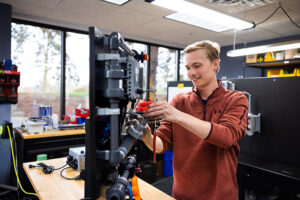Drug-involved overdose deaths have been steadily rising in the U.S. in the past two decades, and opioids – primarily synthetic ones – are currently the main cause of those deaths. At play is the pharmaceutical fentanyl, a synthetic opioid up to 50 times stronger than heroin that doctors prescribe to treat serious pain. More recently, fentanyl-related overdoses have involved illicitly manufactured fentanyl that’s been mixed into other street drugs with or without the knowledge of the user, making them even more dangerous because of the heightened potential for addiction, overdose and death.
Most drug overdose deaths are preventable. We all can play a role in prevention by taking care of ourselves and others in our community, which is especially important as we face new or persistent stressors related to the ongoing pandemic. Here are some key ways to help prevent overdose deaths:
- Street drugs are unpredictable and never risk-free. Learn, as best you can, about the content, strength and purity of any drug you are considering using, every time.
- Do not mix substances (including alcohol, illicit drugs and prescription drugs).
- Avoid using alone so that there is someone there to call for help, should you need it.
- Be prepared to help someone by knowing the signs of overdose and immediately calling 911 (or 414-229-4627 on campus) if any of the signs are present. Check out UWM’s medical assistance policy to learn why you won’t get in trouble for calling for help.
- Use prescription stimulants, sedatives and opioids only as directed by your doctor.
- Never use another person’s prescription medication, and do not share your medications with others.
- Store and dispose of prescription medications safely. A prescription drug drop-box is located in the UWM Police Department, 3410 N. Maryland Ave., to dispose of unneeded medications.
- Reach out if you think or know you or someone you care about has a problem with alcohol or other drugs. Talk with a trusted friend or relative or a professional at University Counseling Services, Norris Health Center or the Dean of Students Office. Help is available and people with substance use problems can and do get better.
For more information, visit Stop Overdose and check out this one-minute video by the Centers for Disease Control and Prevention.



